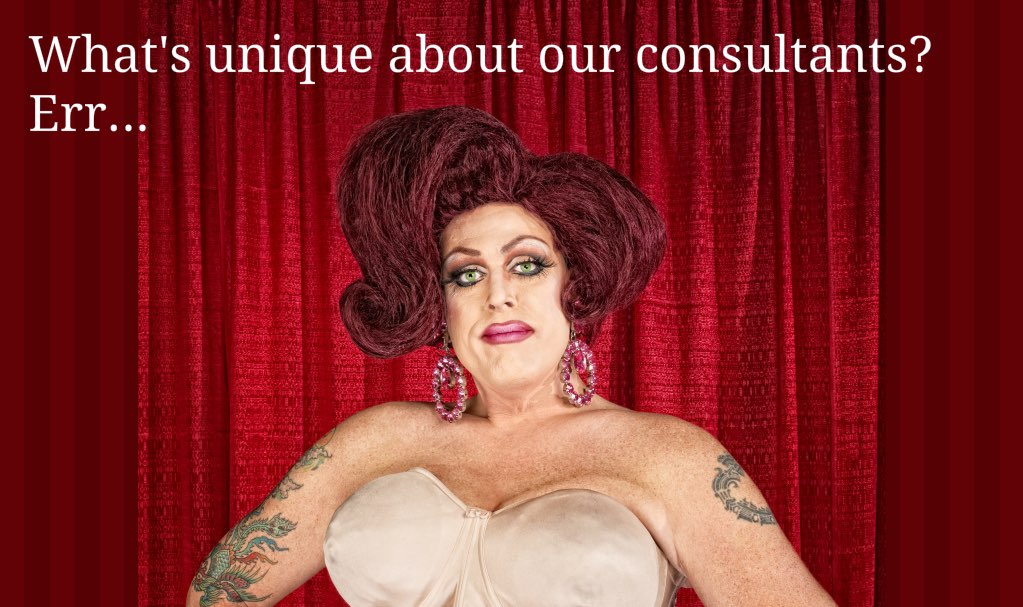When you recruit, you’re naturally looking for the person who’s best for the job you’re recruiting for. If you’re building a company that’s in it for the long term, you need to be careful about how you define “best”.

———–
Let’s say you’ve built your foundations well. Your company’s known for treating its team well, as a great place for people to progress their careers, and so you have a good number of candidates applying. They enter your initial screening process – CVs or LinkedIn or whatever.
At this stage, you’ll eliminate candidates who don’t have the skills or experience the job needs, and perhaps also anyone with anything that’s a key concern for you – they’ve been working in tobacco marketing all their life, or whatever is important for you.
Make sure you don’t eliminate candidates based on “lazy heuristics” at this stage. There’s a lot of HR advice on weeding people out which is far more about risk minimisation and making things easier than about getting to the best outcome.
For instance, just because they’ve had a career break doesn’t automatically make them a flight risk. There are a thousand good reasons why a career break may have made sense – including “I simply needed one”.
Or if they’ve made a typo, that doesn’t mean they’re sloppy and should be rejected. Unless of course you’re looking for a proofreader.
If they have “only 2 years” of experience, don’t eliminate them unless there’s an explicit requirement on experience beyond a vague “it’s just better”.
I can name people I’ve recruited people who’ve fallen foul of all of these, and have been bloody amazing. So please don’t fall for common shortcuts like these.
———–
That said, you will obviously reject some candidates. When you do that, please do what most companies don’t. For the love of being human…
let… them… know.
Don’t go for the “if you don’t hear from us, assume you’ve been unsuccessful” approach. And the more effort is needed in applying for your role, the more custom should be your feedback. If applying is a simple “send in your CV”, your rejection can also be simple and generic. But please reply.
Unless arrogance and indifference are core values in your company, in which case absolutely don’t reply.
That’s a principle to hold on to as your candidates go through the whole process. The further they go – meaning the more time and effort they’ve spent applying for your job – the more detailed feedback you should give them. I’ve had more than one occasion where an unsuccessful candidate commented that they felt they’d had a career development session with us and was grateful for it.
———–
Then when you’re into the assessment process, whatever that process looks like for you, avoid the second thing that most companies do.
Don’t choose between candidates on the basis of who has the most skill or experience.
Yup. Don’t default to the more experienced or qualified.
Here’s what to do instead.
First, make sure that you’re clear about what level of skill and experience is actually needed to do the job. You don’t want to recruit someone who can’t do the job.
Then ensure no one makes it through to your shortlist unless they can tick both those boxes. And I mean tick, not blow the boxes away.
Once you’ve got that shortlist, throw away considerations on skill and experience. Don’t make that the differentiation.
Instead, now differentiate on the basis of who has the best attitude (ie values and care), and the best aptitude (ability to continue growing).
In most companies, but especially professional services, consulting, etc, we tend to try to maximise for skill and experience, and then sprinkle in some very loose concept of whether they’re a cultural fit.
I don’t believe in that. Having recruited several hundred people, and interviewed well over a thousand, I’ve come to the conclusion that we recruit the wrong way round.
Instead, first treat skill and experience as a qualification criteria, i.e. ensure that the shortlisted candidates tick the box in terms of ability to do the job. Then maximise for attitude and aptitude.
Optimise for the things that make the most difference. Whether the candidates will bring a positive impact to the organisation beyond their skills (which is about values, not culture), and if they have the appetite for growth that means they will become more skilled and able than your other candidates.
If you get the values alignment right, you’re most likely to have someone who not only will hang around, but will also deepen those values.
And the emphasis is on values – I’d encourage cultural diversity, but values alignment. Diversity in background, orientation, faith, or the countless other ways we’ve chosen to differentiate ourselves from each other will bring richness and cognitive strength.
But if you’re going to work with me, a core value of caring about your work is non-negotiable. Being human. Proactivity. Whatever it is that is an important value will be a huge part of my selection. Not some loose cultural thing of “Can I see myself in the pub with this person” (in my early recruiting days, shamefully guilty as charged).
So in summary, don’t follow the common priorities:
- As experienced as possible
- As skilled as possible
- Will they fit in culturally
- Some vague attitude thing.
Instead:
- Do they have enough skill to do the job?
- Do they have enough experience for the level I’m looking for?
- Maximise for attitude – are they aligned with our values? Are they positive? Do they bring something constructive to the party?
- Maximise for aptitude – are they demonstrably eager to continue growing? Are they proactive?
There’s a huge amount to unpick below this, but as guidelines go, it’s a much better place to start than the standard way we’re still recruiting.
———–
I mentioned at the outset that this is dependent on your having had a number of candidates because you’ve done your groundwork. What does that groundwork look like?
Well, it looks a lot like the things you do to retain and grow your team. Which is the subject of next week’s newsletter.
How we can support you
- Join us to support you as you scale your company; create time to focus on the bigger picture; and keep values and purpose at the core.
- Subscribe to our Bite-Sized Business Tips - thought snippets for values-centred business leaders. Every few days, a short focussed read on a specific topic of how to lead a company that values both profit and purpose.
- Talk to us to explore how we can help you scale your company in the direction you want to take it.

